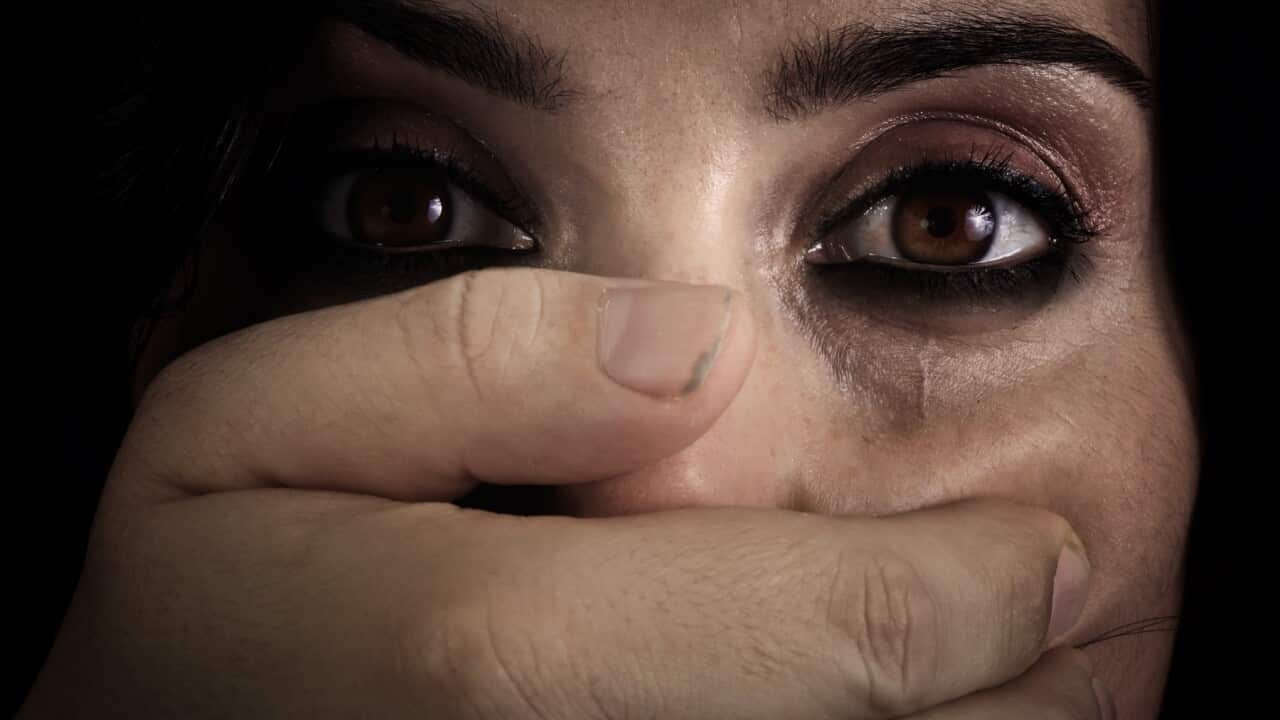English
Men's body image is often thought to centre on things like muscle mass and fitness.
But new research from Monash University has taken a look at what is an often under-studied but no doubt significant aspect of men’s body image concerns.
That being, the size of their penis.
Associate Professor and Senior Clinical Psychologist at Monash University Gemma Sharp led the study and says the research started with a focus on women.
Then, she says they realised just how understudied men’s concerns with penis size are.
"I was very happy to expand that research about six, seven years ago and we started primarily talking with men who'd had penile augmentations. So men who were so concerned about their penile size and shape that they had paid a grand sum of money to augment their penis size. And then I realised there was this huge opportunity to prevent these concerns from happening in the first place."
So, Dr Sharp and her research team embarked on a study into how body image and concerns about penis size impact people with a penis, their self-esteem, their health, and even how they view women.
Not only this, but the team also began co-designing and developing an educational video, addressing mounting concerns about inadequate sexual education and how current programs often fail to address or educate students on body acceptance and appreciating the many functions our body serves.
"There was virtually nothing out there that had any research backing. So that's why we started from the beginning with this extensive co-design process with young adult men to work out the kind of messages that they would respond to what educational content had to be and what would be effective, they thought, with boys in a high school setting. "
Twenty men, mostly in their mid-twenties, participated in the project and the design of the educational video.
The research finds that most participants were not supportive of challenging the narrative that when it comes to penis size - "bigger is better".
"Probably the most interesting finding, and probably the most fun we had in the process was just challenging them on is bigger necessarily better? And we showed them all this research showing that partners, generally speaking, were not looking for big penises in relationships. That penis size really didn't matter in terms of relationship satisfaction. But they really didn't believe us. So we showed them all this research and they said, 'no, that's not the case. Bigger is better.' So, we're like, okay, we're probably not going to get a lot of traction in our educational video if we really push that message that penis size doesn't matter."
The study found that despite evidence against it, many men were adamant that penis size and appearance was important.
So much so that negative perceptions of their own genitalia can even impact whether or not people allow doctors to view them.
In fact, the findings show that men who are concerned about their penis shape or size are often less likely to undergo medical check-ups for things like sexually transmitted infections.
"If a man is concerned about his penile size, shape appearance. It can certainly mean he is less likely to undergo things like STI checks, prostate examinations, all of those urological type routine screenings that men are meant to undergo. We've certainly seen that across the gender spectrum as well. So I think anyone who has any concerns in that area is more likely to avoid medical intervention. Even if they might be really needing it."
One of the participants in the study - whose name and voice has been changed for privacy reasons - says he was just thirteen when he first developed concerns about what his penis looked like.
“At around age 13, I started to become concerned as to whether my erect penis was ‘normal’ in terms of size and shape. I was especially concerned that my penis wasn't completely straight, and wondered if this was ‘normal’”
He says that an educational video would have helped him when he was younger.
“I think it would have been very valuable to have to have an educational video shown to me at school when I was around 13 as it probably would have allayed at least some of my concerns. Given that pornography is so accessible these days, the video might help to show teenage boys that not all penises are so large as in pornography.”
The study also found that the idea that penis size matters is one often propagated by mainstream media, social media, and pornographic content.
Another participant in the study, who himself underwent a penile augmentation procedure, says watching pornography has a negative impact on the developing mind.
"Watching porn is honestly the worst thing for their developing brains. This becomes their first insight into what sex should be as they watch men with huge penises disrespecting women, who are very attractive, and then use those references in the real world. Teenagers would instantly think that their penises are too small and also have difficulty getting aroused because their partners in the real world are not as attractive nor do they behave in the same way as the pornstars on the screen. Eventually guys become too lazy to go out and meet girls because staying home with the screen with an endless smorgasbord of visual stimulation beyond their wildest dreams is available to them. It's bad."
Dr Sharpe says because of the push-back against research showing size did not matter, the educational approach needed to place more emphasis on self-acceptance and normalising differences.
She says that many concerns are compounded by social media and pornography, but because concerns around body image are often perceived as impacting women more than men, men are often not asked about the issue.
Alternatively, researchers find that women’s perception of their genitalia is often impacted by their partners consumption of pornographic content, rather than by their own consumption of it.
"Generally speaking, women are not as big consumers of pornography, it certainly is an influence. I think what we were finding was more that their sexual partners were influenced by pornography and then they would sometimes make negative comments about their partners genitalia."
Currently, the educational video developed by Dr Sharp and her team is being used as part of a broader body image program.
She says she hopes that education about genital body image will soon become a standard part of the education curriculum.
Italian
Il più delle volte si pensa che l'ideale del corpo maschile sia incentrato su aspetti quali la massa muscolare e la forma fisica.
Ma una nuova ricerca della Monash University ha analizzato un aspetto spesso poco studiato, ma di sicuro importante, dell'immagine del corpo degli uomini.
Si tratta delle dimensioni del pene.
La professoressa associata e psicologa clinica della Monash University Gemma Sharp ha guidato lo studio e racconta che la ricerca è iniziata concentrandosi sulle donne.
Poi si è resa conto di quanto poco studiate siano le preoccupazioni degli uomini riguardo alle dimensioni del pene.
"I was very happy to expand that research about six, seven years ago and we started primarily talking with men who'd had penile augmentations. So men who were so concerned about their penile size and shape that they had paid a grand sum of money to augment their penis size. And then I realised there was this huge opportunity to prevent these concerns from happening in the first place."
La dottoressa Sharp e il suo team di ricerca hanno quindi intrapreso uno studio su come l'immagine del corpo e le preoccupazioni per le dimensioni del pene influenzino le persone con un pene, la loro autostima, la loro salute e persino il modo in cui vedono le donne.
Non solo, ma il team ha anche iniziato a co-progettare e sviluppare un video educativo, affrontando le crescenti preoccupazioni sull'inadeguatezza dell'educazione sessuale e sul fatto che i programmi attuali spesso non affrontano o educano gli studenti all'accettazione del corpo e all'apprezzamento delle molte funzioni che il nostro corpo svolge.
"There was virtually nothing out there that had any research backing. So that's why we started from the beginning with this extensive co-design process with young adult men to work out the kind of messages that they would respond to what educational content had to be and what would be effective, they thought, with boys in a high school setting. "
Venti uomini, per lo più sui venticinque anni, hanno partecipato al progetto e all'ideazione del video educativo.
La ricerca ha rilevato che la maggior parte dei partecipanti non era favorevole a sfidare la narrativa secondo cui, quando si parla di dimensioni del pene, "più grande è meglio".
"Probably the most interesting finding, and probably the most fun we had in the process was just challenging them on is bigger necessarily better? And we showed them all this research showing that partners, generally speaking, were not looking for big penises in relationships. That penis size really didn't matter in terms of relationship satisfaction. But they really didn't believe us. So we showed them all this research and they said, 'no, that's not the case. Bigger is better.' So, we're like, okay, we're probably not going to get a lot of traction in our educational video if we really push that message that penis size doesn't matter."
Lo studio ha rilevato che, nonostante le prove contrarie, molti uomini sono convinti che le dimensioni e l'aspetto del pene siano importanti.
A tal punto che la percezione negativa dei propri genitali può persino influenzare la scelta di farsi visitare dai medici.
Infatti, i risultati mostrano che gli uomini preoccupati per la forma o le dimensioni del loro pene sono spesso meno propensi a sottoporsi a controlli medici per infezioni sessualmente trasmissibili.
"If a man is concerned about his penile size, shape appearance. It can certainly mean he is less likely to undergo things like STI checks, prostate examinations, all of those urological type routine screenings that men are meant to undergo. We've certainly seen that across the gender spectrum as well. So I think anyone who has any concerns in that area is more likely to avoid medical intervention. Even if they might be really needing it."
Uno dei partecipanti allo studio - il cui nome e la cui voce sono stati cambiati per motivi di privacy - dice che aveva solo tredici anni quando ha iniziato a preoccuparsi dell'aspetto del suo pene.
“At around age 13, I started to become concerned as to whether my erect penis was ‘normal’ in terms of size and shape. I was especially concerned that my penis wasn't completely straight, and wondered if this was ‘normal’”
Secondo lui, un video educativo lo avrebbe aiutato quando era più giovane.
“I think it would have been very valuable to have to have an educational video shown to me at school when I was around 13 as it probably would have allayed at least some of my concerns. Given that pornography is so accessible these days, the video might help to show teenage boys that not all penises are so large as in pornography.”
Lo studio ha anche rilevato che l'idea che le dimensioni del pene siano importanti è spesso propagandata dai media tradizionali, dai social media e dai contenuti pornografici.
Un altro partecipante allo studio, che si è sottoposto a una procedura di aumento del pene, afferma che guardare la pornografia ha un impatto negativo sullo sviluppo della mente.
"Watching porn is honestly the worst thing for their developing brains. This becomes their first insight into what sex should be as they watch men with huge penises disrespecting women, who are very attractive, and then use those references in the real world. Teenagers would instantly think that their penises are too small and also have difficulty getting aroused because their partners in the real world are not as attractive nor do they behave in the same way as the pornstars on the screen. Eventually guys become too lazy to go out and meet girls because staying home with the screen with an endless smorgasbord of visual stimulation beyond their wildest dreams is available to them. It's bad."
La dottoressa Sharpe sostiene che, a causa delle spinte contro la ricerca che dimostra che le dimensioni non contano, l'approccio educativo deve porre maggiore enfasi sull'accettazione di sé e sulla normalizzazione delle differenze.
Secondo la dottoressa, molte preoccupazioni sono aggravate dai social media e dalla pornografia, ma poiché le preoccupazioni relative all'immagine corporea sono spesso percepite come un impatto sulle donne più che sugli uomini, spesso gli uomini non vengono interpellati.
In alternativa, i ricercatori hanno scoperto che la percezione che le donne hanno dei propri genitali è spesso influenzata dal consumo di contenuti pornografici da parte dei loro partner, piuttosto che dal loro stesso consumo.
"Generally speaking, women are not as big consumers of pornography, it certainly is an influence. I think what we were finding was more that their sexual partners were influenced by pornography and then they would sometimes make negative comments about their partners genitalia."
Al momento, il video educativo sviluppato dalla dottoressa Sharp e dal suo team viene utilizzato come parte di un programma più ampio sull'immagine del corpo.
La dottoressa spera che l'educazione all'aspetto dei genitali diventi presto una parte fissa del curriculum scolastici.




